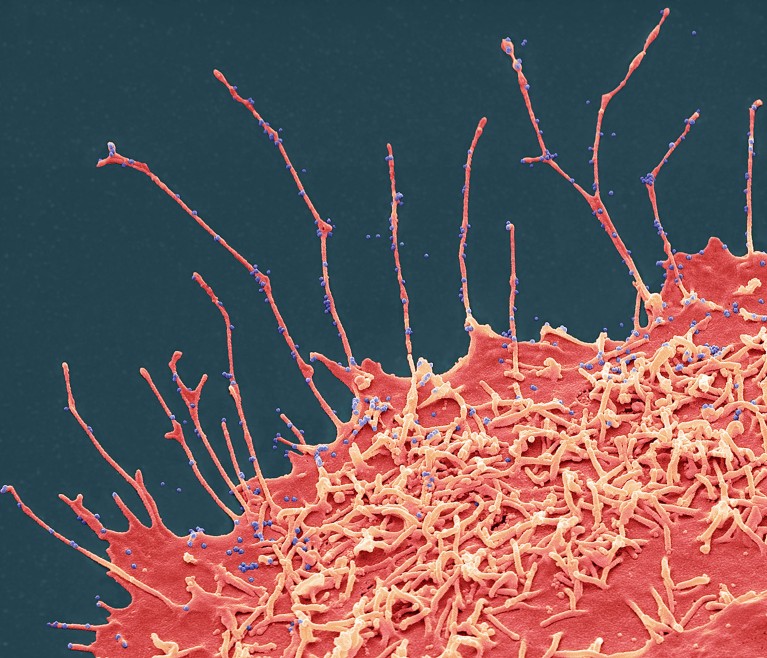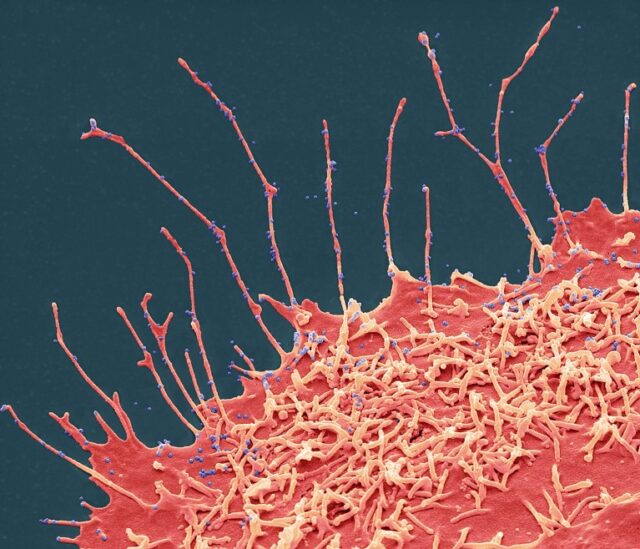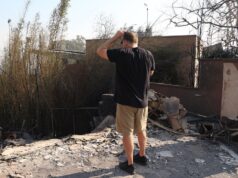Hello Nature readers, would you like to get this Briefing in your inbox free every day? Sign up here.

RNA viruses including SARS-CoV-2 constantly accrue new mutations.Credit: Steve Gschmeissner/SPL
A growing number of research groups are using artificial intelligence (AI) to predict the evolution of viruses such as SARS-CoV-2 and influenza. If scientists can predict how a virus will mutate, they can, in theory, design vaccines and antiviral treatments ahead of time. So far, AI can predict which single mutations in a virus will be most advantageous, but it’s a long way from forecasting combinations of mutations and their long term effects. It’s extremely challenging, but the field is “a really exciting and very useful area for research”, says computational biologist Brian Hie.
Nature | 5 min read
NASA has once again delayed making a decision on how to bring rocks collected by its Perseverance rover back from Mars. The agency said it would explore two options, one using well-tested NASA technology and the other relying on systems being developed by private aerospace companies. Costs for either option range from around US$6 billion to $7 billion — an improvement on earlier estimates that ballooned as high as $11 billion, but still a struggle for the cash-strapped agency. The final decision isn’t expected until late 2026.
Nature | 5 min read
There was so much lead in the air during the ancient Pax Romana period that it might have caused cognitive decline in people across Europe. The smelting of silver from the mineral galena, a widespread industry at the time of the Roman Empire, releases lead as a gas. By combining data from ice cores, which can act as records of pollution over time, with historical climate information, researchers worked out that the amount of lead Roman people might have had in their blood in childhood, taken in from air pollution, could have caused an average drop of 2.5-3 IQ points.
Science | 5 min read
Reference: Proceedings of the National Academy of Sciences paper
Features & opinion
Evidence is building that adventurous play with an element of risk is crucial for children. Despite this, for many families risky play is now more restricted than ever. The key, say advocates, is to support children to set, and to stretch, their own limits. “Most people assume I would be against risky play,” says Pamela Fuselli, president of an injury-prevention non-profit organization. “But the benefits are so broad in terms of social, physical, mental development and mental health, I don’t think we can underestimate the value.”
Nature | 11 min read
A century ago, a breathtaking wave (or were they particles?) of innovation swept across physics. It began with concerns about the orbits used to explain the motion of electrons in atoms — but quantum theory ended up upending reality itself, writes science historian Kristian Camilleri. As we enter the International Year of Quantum Science and Technology, quantum technologies underpin everything from transistors to MRI scanners. But “the quantum revolution still has unfinished business”, says a Nature editorial.
Nature | 11 min read & Nature | 6 min read
Our appetite for caviar has helped to drive sturgeon populations off a cliff in the wild. A patchwork of bans in the 2000s kept the delicacy off the menu for most, but now aquaculture — and social-media influencers — are bringing it back to the table. Soviet scientists developed techniques for raising the slow-growing, long-lived fish in captivity, and Soviet-born scientist Sergei Doroshov brought sturgeon farming to North America. “More Russian sturgeon probably reside on farms than exist in the entirety of the Caspian wild,” writes seafood and environmental writer Paul Greenberg.
Hakai | 19 min read
Today I’m enjoying the news that sponges sneeze, thanks to four years of monitoring a Suberites concinnus nicknamed ‘Belinda’ that lives in the crisp waters of Barkley Sound in British Columbia, Canada. “But it’s a slow sneeze,” says spongiologist and study co-author Sally Leys. “For Belinda, it’s like a day.” Alongside the slow-motion expulsion of debris, Belinda and her spongy brethren also contract into a smaller, dormant state in the winter and make other moves not apparent to our mayfly minds. “I was blown away by how active it was,” says Leys. “This thing was bouncing up and down, and doing all kinds of things.”
While I continue to gradually expand from my own winter dormancy, why not expel your feedback about this newsletter? Bounce into my inbox at [email protected].
Thanks for reading,
Flora Graham, senior editor, Nature Briefing
With contributions by Jacob Smith
Want more? Sign up to our other free Nature Briefing newsletters:
• Nature Briefing: Careers — insights, advice and award-winning journalism to help you optimize your working life
• Nature Briefing: Microbiology — the most abundant living entities on our planet — microorganisms — and the role they play in health, the environment and food systems
• Nature Briefing: Anthropocene — climate change, biodiversity, sustainability and geoengineering
• Nature Briefing: AI & Robotics — 100% written by humans, of course
• Nature Briefing: Cancer — a weekly newsletter written with cancer researchers in mind
• Nature Briefing: Translational Research — covers biotechnology, drug discovery and pharma






